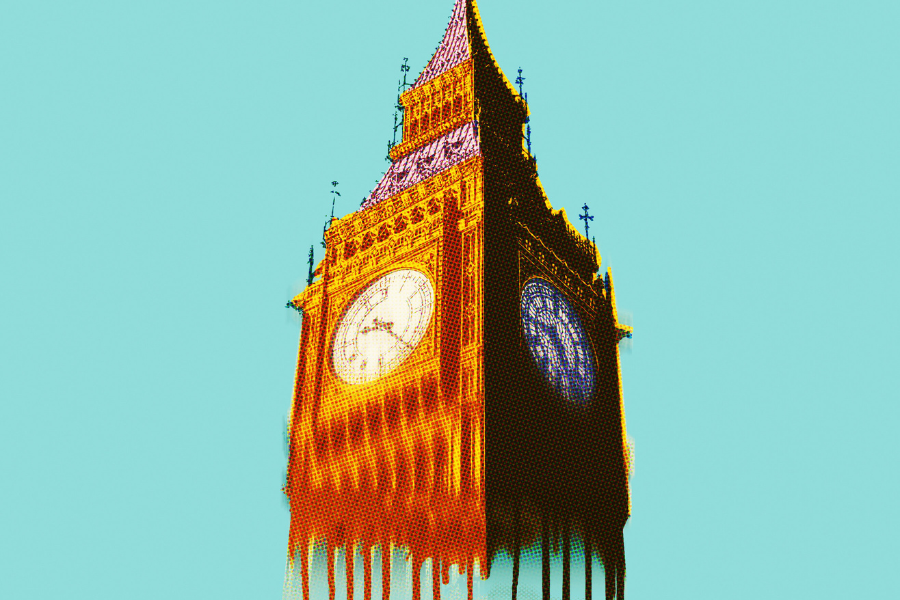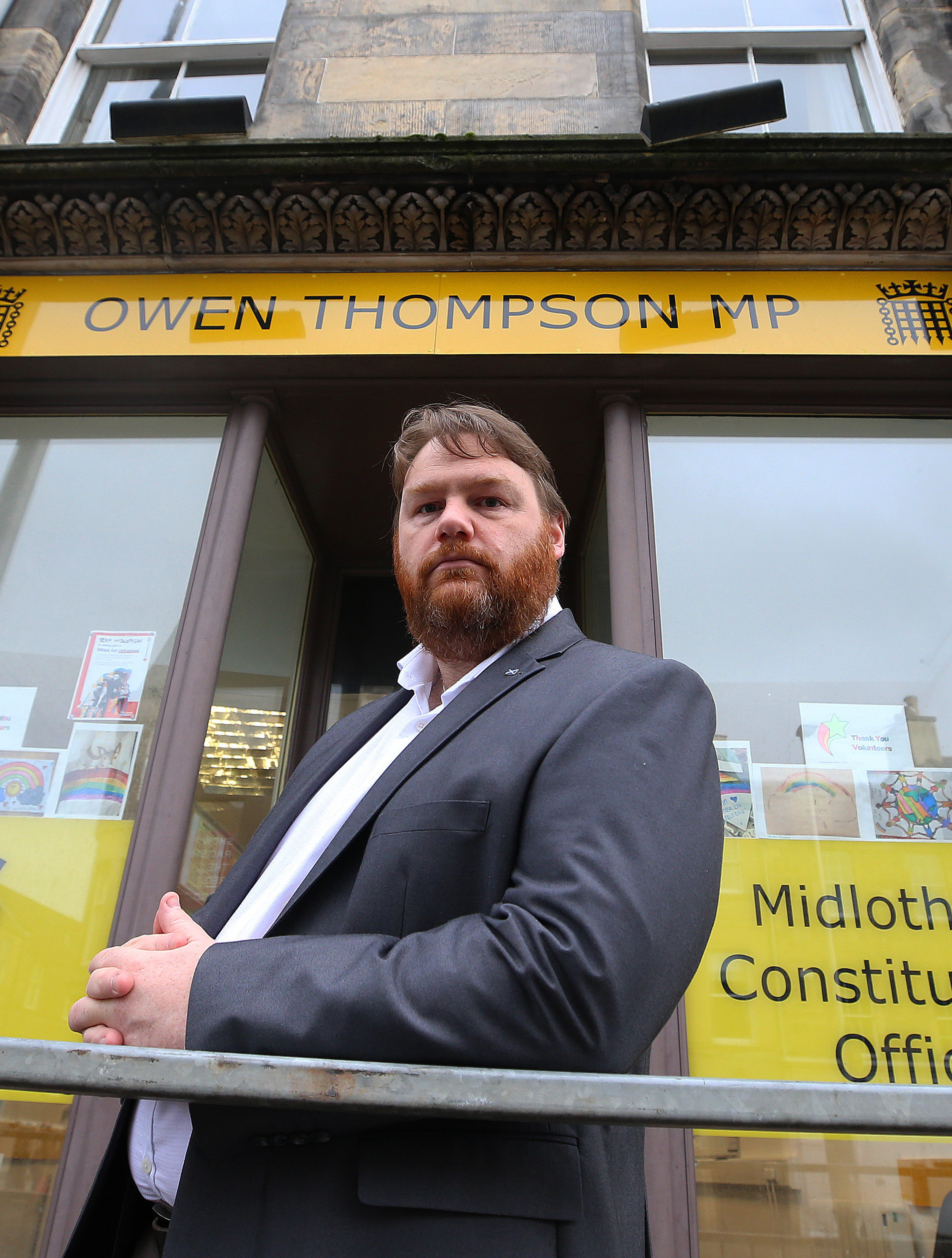
THERE has been much talk in recent years about a “culture war” in Britain, allegedly fought between two political and social factions: metropolitan liberals versus small town conservatives – people who supposedly have radically different views on immigration, our imperial past, and identity issues.
Britain is infatuated with American politics – hooked by the adoration, and the mass delirium, that is witnessed during US elections – and our domestic “culture war” has largely been imported across the Atlantic. The jousting seen between the Democrats and the Republicans – between Fox News and CNN – has been ripped off by those who profit from contrived conflict and has been awkwardly applied to British society.
Polling and demographic mapping consistently shows that Britain is not the site of an epic conflict between two radically opposed groups of people. In the real world, beyond the gates of Twitter, liberals are more conservative than the culture war portrays, just as conservatives are more liberal.
As the British Social Attitudes survey notes, there is widespread and consistent public support for ending freedom of movement, with three-fifths of voters backing an end to the policy. Even among Remain voters, half support a policy that is incompatible with freedom of movement. However, while EU immigration rules are broadly unpopular, most people do not want to pull up the drawbridge and turn Britain into a mediaeval, monoethnic state.
More Leave than Remain voters believe that migrants should have to earn a minimum amount of money to be allowed into the country, but as many as three-quarters of Leave voters say the minimum should be £20,000 or less – as opposed to the Government’s initial, post-Brexit proposal of £35,800.
Ergo, the confected culture war ignores the UK’s complex social and political mosaic – and subsumes the real divides that run through our shores.
One of these divides – a subject of major electoral influence in recent years yet consistently suppressed by the London-based media – is between the Scottish (and Welsh) people and the Tory-dominated House of Commons.
England has imposed more than a decade of Conservative rule on Scotland and Wales, against the wishes of these two countries. They have both repeatedly snubbed the Conservative Party, yet they have seen four consecutive elections in which a Tory prime minister has been placed in charge of their affairs. In the case of Scotland, further bruising has been caused by Brexit, when England (and Wales in this instance) overwhelmed Scotland’s Remain vote and wrenched the UK out of the EU.
This sense of injustice was heightened during the withdrawal process. Article 50 – the official mechanism to leave the EU – was triggered without the agreement of the Scottish and Welsh governments. This was despite Prime Minister Theresa May pledging that she would first agree “a UK approach and objectives for negotiations”. The European Union (Withdrawal) Act 2018 – which instituted our departure into law – was also passed without Scottish consent. The Institute for Government called this an “unprecedented assertion of parliamentary sovereignty to push through a bill that directly amended the terms of devolution”.

“There was no engagement with the Scottish Government,” during the Brexit process, SNP MP Owen Thompson tells me from his constituency office in Midlothian. “We were ignored at every step, and I think that has contributed to people asking whether we have to put up with this anymore.”
IN 2017, 61% of people in Scotland said they trusted the Scottish Government to work in their best interests, matched by 66% of people in Wales in relation to their devolved administration. This compares to 27% of Welsh voters who trust the UK Government, and just 21% of Scots.
There is no longer a political alignment between the British nations, and so faith towards Westminster has dissipated in Scotland and Wales. This is not the product of insidious secession campaigns; it’s a manifestation of democratic reality. People in Scotland and Wales believe that their devolved governments better represent their interests – because they do.
Thompson says that the relationship between Scotland and Westminster is equivalent to “your wage every month going to your neighbour, who gives you back some of it, having decided what you’re going to eat for your dinner every night. And just to top it off, your neighbour is Boris Johnson.”
These differences manifest through the political architecture of the Scottish and Welsh democratic systems. The Senedd in Cardiff shares many design features with the Scottish Parliament. Airy, modern and lavished with glass, they purposefully convey a political ethos: open, transparent, forward-thinking. The contrast with the Palace of Westminster – its aristocratic rituals, its intimidating architecture and its dark, stuffy corridors – is also entirely intentional. This collaborative approach in Scotland and Wales flows through their voting systems, both adopting proportional representation.
But Britain’s major media outlets – and Westminster’s two dominant political parties – have failed to wrestle with the growing political chasm between Cardiff, Edinburgh and London.
Indeed, there’s a widespread ignorance in the media towards issues outside the English capital, says Dorothy Byrne – former editor-at-large of Channel 4. She tells me that her peers automatically assumed that she came from a poorer background, for example, because she was born in Scotland.

“One of the things that I find very funny is the number of journalists who talk about Glasgow as a working-class city and Edinburgh as a middle-class city. And I say to them: in both those places they have middle-class people and working-class people. There are not whole cities outside of London with just one social class,” she says.
The end of the industrial era prompted an economic flight down to London, with hubs of commerce clustering in the all-consuming capital. This can also be said about the media, and even progressive politics.
In 2005, Labour had won 41 of the 59 available Westminster seats in Scotland and 39.5% of the vote share. At the 2019 UK general election, however, the Labour Party won a solitary seat in Scotland, Edinburgh South, and 18.6% of the national vote.
Labour’s collapse was dramatic, precipitated and exploited by the SNP, which further shifted the locus of Labour politics to Westminster and London. This complacency north of the border presaged Labour’s crisis in the Red Wall years later.
“The party has entirely failed to adjust to changes in Scotland,” says Mike Buckley – a Labour Party campaigns consultant. “Labour lost Scotland in 2015 and then just didn’t know what to do about it so didn’t do anything at all. For the past five or six years the party has basically just shrugged its shoulders at the fact we lost Scotland.”
Therefore, journalists and Westminster progressives have vacated Scotland – flocking instead to London, which increasingly rules the domestic economy. Indeed, 30% of private sector jobs in Britain currently exist in London, despite housing just 15% of the overall population. London’s GDP per-capita, meanwhile, is 40% higher than the England-wide average – £54,686 versus £32,857 – and a staggering 57% ahead of the north east.
Across all indicators and among all large advanced industrial economies, the UK is the most regionally unequal, says Philip McCann from the University of Sheffield, who studies regional inequalities.
“It is likely that the enormous imbalances within the UK are heavily related to the over-centralised national governance system,” he notes, adding that: “In many ways, the economic geography of the UK is reminiscent of a much poorer country at an earlier stage of economic development.”
To some extent, however, Scotland has fared better than the rest of Britain in recent memory. Though the SNP’s record can and has been endlessly debated, the long-term trends in Scotland during the devolution era are positive.
IN 1999, prior to devolution, median weekly wages in Scotland for full-time employees were 5% lower than for people in England – a gap that halved during the next two decades. Scotland has made gains while English regions, outside London and the south east, have lagged behind. Median full-time wages in the north-west mirrored Scotland in 1999, yet by 2019 Scottish wages were 5% higher. In terms of productivity also, Scotland has surged. Prior to devolution, productivity in Scotland was 1.3% lower than in the north west. By 2019, Scotland was ahead by 6.5%.
UNDOUBTEDLY, Scotland and Wales have provided a model for the democratisation of power across England’s regions – even if, in both countries, there is an appetite and a need for greater sovereignty.
Following this example, England’s regions must acquire meaningful and growing powers from London, applied to large enough jurisdictions, allowing their agendas to significantly diverge from central government and reversing years of neglect and stagnation. Otherwise, global Britain’s regional inequalities will continue to be an international aberration.
Yet, though Scotland has performed much better than other areas of the country, the agents of Vote Leave continue to fly their flag over Downing Street. As long as this remains the case, it seems likely that the people of Scotland will be keen to extract their colours from the Union Jack.
Britain is currently divided between poorer and richer areas – and between those who have been marginalised by Conservative Westminster rule and those who have been empowered by it. These are the real culture wars enveloping this island.
Sam Bright’s book, Fortress London: Why We Need To Save The Country From Its Capital, is out now with Harper North







